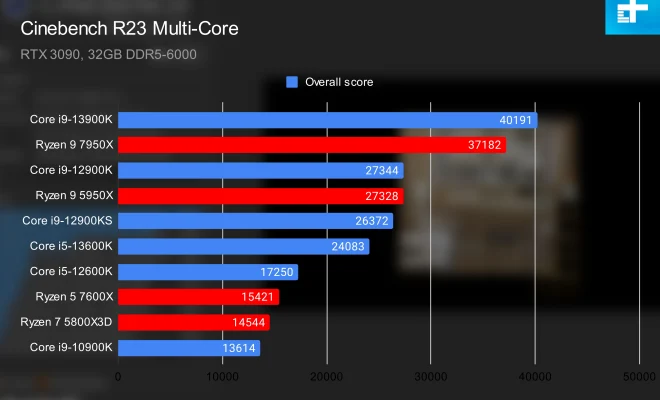AMD vs. Intel CPUs: Which Is Best ?

In the world of computing, AMD and Intel are two of the biggest names when it comes to processors. Both companies have been in the business for decades, and both have a loyal fan base. But when it comes to choosing between the two, there seems to be a never-ending debate on which is better. So, let’s take a closer look at the battle of the CPUs – AMD vs. Intel.
Performance
The most important factor to consider when choosing a processor is its performance. While this is subjective, benchmarks can give us an accurate comparison. In recent years, AMD has been giving Intel tough competition thanks to its Ryzen processors. These CPUs have been designed for high performance and multi-threading capabilities, making them a popular choice among gamers and content creators.
On the other hand, Intel still dominates in the single-threaded performance arena, which makes it a better choice for tasks that require high single-core performance, such as gaming. However, with the release of their latest 11th generation Core processors, Intel is catching up in terms of multi-threaded performance, making the choice between the two even harder.
Price
In general, AMD processors offer better value for money when compared to Intel processors. This is because AMD processors come with more cores and threads for a lower price. Additionally, AMD CPUs are more efficient when it comes to power consumption, which translates to lower energy bills for users.
Intel processors, on the other hand, are more expensive but offer better single-threaded performance. That being said, it’s worth considering the specific task you’ll be using your CPU for when choosing between the two.
Compatibility
When it comes to compatibility, both AMD and Intel processors have their respective advantages and disadvantages. Intel CPUs are generally more compatible with older motherboards, whereas AMD CPUs require a newer motherboard to be used. Additionally, Intel processors are known to have better compatibility with integrated graphics than AMD processors.
In terms of software compatibility, both AMD and Intel CPUs are compatible with a wide range of software. However, some software may be optimized for one particular processor, so it’s worth checking the compatibility of your software with your chosen CPU.
Overclocking
Overclocking is the process of running a CPU at a higher frequency than its default frequency. Both AMD and Intel processors can be overclocked, but AMD processors are generally better suited for overclocking due to their higher core and thread count.
That being said, Intel processors are more stable when overclocked, making them a better choice for users who value stability.
Conclusion At the end of the day, the choice between AMD and Intel CPUs comes down to your specific needs and preferences. While AMD processors are known for their high performance and value for money, Intel still dominates in single-threaded performance.
If you’re a gamer or content creator who requires high multi-threaded performance, AMD Ryzen processors are a great choice. On the other hand, if you need a CPU for tasks that require high single-core performance or compatibility with older motherboards, Intel is the way to go.






